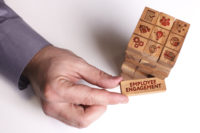Ripple Effect of Unhappy Coworkers
It seems like every office has at least one employee who’s constantly complaining about one thing or another or just generally has a bad attitude. Sometimes their complaints are legitimate; sometimes they just like to complain. Often coworkers and managers will just roll their eyes and do what they can—or are willing to do—to be […]













